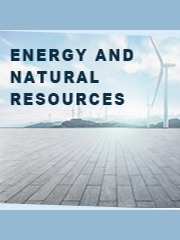The global Silicon-Based Anode Material market was valued at US$ 379.5 million in 2022 and is projected to reach US$ 471.7 million by 2029, at a CAGR of 3.2% during the forecast period. The influence of COVID-19 and the Russia-Ukraine War were considered while estimating market sizes.
Silicon has been recognized as a one of the most promising anode materials to replace currently used graphite in the anodes of Li-ion batteries due to its high gravimetric theoretical lithium storage capacity. Fast charging is feasible due to the high porosity inherent to silicon anode solutions, while costs can be reduced because of silicon materials? high capacity, which results in lower material requirements. Silicon anodes are also considered safer because they help reduce the risk of lithium plating and dendrite formation, even though cycle and calendar life may need to be further demonstrated.
This report aims to provide a comprehensive presentation of the global market for Silicon-Based Anode Material, with both quantitative and qualitative analysis, to help readers develop business/growth strategies, assess the market competitive situation, analyze their position in the current marketplace, and make informed business decisions regarding Silicon-Based Anode Material. This report contains market size and forecasts of Silicon-Based Anode Material in global, including the following market information:
Global Silicon-Based Anode Material Market Revenue, 2018-2023, 2024-2029, ($ millions)
Global Silicon-Based Anode Material Market Sales, 2018-2023, 2024-2029, (MT)
Global top five Silicon-Based Anode Material companies in 2022 (%)
Global key silicone anode material players include BTR, Shin-Etsu and Daejoo etc. The top 3 companies hold a share about 95%. China is the largest market with a share about 53%, followed by Japan and South Korea.
In terms of product, Si/C product is the largest segment with a share over 50%. And in terms of applications, the largest application is automotive with a share about 81%.
We surveyed the Silicon-Based Anode Material manufacturers, suppliers, distributors and industry experts on this industry, involving the sales, revenue, demand, price change, product type, recent development and plan, industry trends, drivers, challenges, obstacles, and potential risks.
Total Market by Segment:
Global Silicon-Based Anode Material Market, by Type, 2018-2023, 2024-2029 ($ Millions) & (MT)
Global Silicon-Based Anode Material Market Segment Percentages, by Type, 2022 (%)
Global Silicon-Based Anode Material Market, by Application, 2018-2023, 2024-2029 ($ Millions) & (MT)
Global Silicon-Based Anode Material Market Segment Percentages, by Application, 2022 (%)
- Automotive
- Consumer Electronics
- Others
Global Silicon-Based Anode Material Market, By Region and Country, 2018-2023, 2024-2029 ($ Millions) & (MT)
Global Silicon-Based Anode Material Market Segment Percentages, By Region and Country, 2022 (%)
- North America
- US
- Canada
- Mexico
- Europe
- Germany
- France
- U.K.
- Italy
- Russia
- Nordic Countries
- Benelux
- Rest of Europe
- Asia
- China
- Japan
- South Korea
- Southeast Asia
- India
- Rest of Asia
- South America
- Brazil
- Argentina
- Rest of South America
- Middle East & Africa
- Turkey
- Israel
- Saudi Arabia
- UAE
- Rest of Middle East & Africa
Competitor Analysis
The report also provides analysis of leading market participants including:
- Key companies Silicon-Based Anode Material revenues in global market, 2018-2023 (Estimated), ($ millions)
- Key companies Silicon-Based Anode Material revenues share in global market, 2022 (%)
- Key companies Silicon-Based Anode Material sales in global market, 2018-2023 (Estimated), (MT)
- Key companies Silicon-Based Anode Material sales share in global market, 2022 (%)
Further, the report presents profiles of competitors in the market, key players include:
- BTR
- Hitachi Chemical
- Shanshan Corporation
- Shintech
- Jiangxi Zichen Technology
Outline of Major Chapters:
- Chapter 1: Introduces the definition of Silicon-Based Anode Material, market overview.
- Chapter 2: Global Silicon-Based Anode Material market size in revenue and volume.
- Chapter 3: Detailed analysis of Silicon-Based Anode Material manufacturers competitive landscape, price, sales and revenue market share, latest development plan, merger, and acquisition information, etc.
- Chapter 4: Provides the analysis of various market segments by type, covering the market size and development potential of each market segment, to help readers find the blue ocean market in different market segments.
- Chapter 5: Provides the analysis of various market segments by application, covering the market size and development potential of each market segment, to help readers find the blue ocean market in different downstream markets.
- Chapter 6: Sales of Silicon-Based Anode Material in regional level and country level. It provides a quantitative analysis of the market size and development potential of each region and its main countries and introduces the market development, future development prospects, market space of each country in the world.
- Chapter 7: Provides profiles of key players, introducing the basic situation of the main companies in the market in detail, including product sales, revenue, price, gross margin, product introduction, recent development, etc.
- Chapter 8: Global Silicon-Based Anode Material capacity by region & country.
- Chapter 9: Introduces the market dynamics, latest developments of the market, the driving factors and restrictive factors of the market, the challenges and risks faced by manufacturers in the industry, and the analysis of relevant policies in the industry.
- Chapter 10: Analysis of industrial chain, including the upstream and downstream of the industry.
- Chapter 11: The main points and conclusions of the report.
